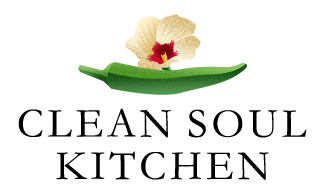Managing Gout

Gout is one of those conditions that crops up later in life to remind you of all the bad choices you made when you were younger. I know many a fried pork chop, barbecue rib, hotdog, hoppin' john, and beer lover that is now a white wine spritzer, steamed vegetable afficianado. But old habits die hard, and rib eye steak and asparagus looks and smells so good. Problem is, spike that uric acid production too fast and the gout sufferer is left is excruciating pain that has nothing to do with a full stomach.
If you are unfamiliar with this inflammatory, arthritis-like disease and you have someone in your family who suffers from Gout, listen up: it is a genetically linked ailment, so if you are not mindful of what you eat and drink now, you may end up suffering from it too (and just at that point in life when you have the RIGHT to eat and drink whatever you please.) Folks with gout can't metabolize purines well, which causes uric acid to build up and form crystals around the joints. That is why it is so damn painful.
The Gout diet is generally known as the "can't" diet and "don't" diet. Like, can't have red meat or certain meats in general. Don't drink beer or eat shellfish. And if you think that going vegan or vegetarian is the key, don't get all high and mighty - because a lot of beans and vegetables like asparagus, cauliflower, spinach, mushrooms, and green peas are on the purine list too. So why are a hamburger and cauliflower both on the list? Because Gout is a triggered ailment, and it is triggered by purines. Purines are an organic compound present in certain foods, especially red meats and organ meats, as well as scallops and yeast (which is why beer is on the no-no list). It is also present in moderately high amounts in poultry, pork, other types of shellfish, lentils, oatmeal, wheat germ and wheat bran. You can find a comprehensive list of foods by purine level here.
Just like eating for diabetes, or hypertension, or lupus, or other health conditions, managing Gout takes extra attention - but it doesn't have to mean total deprivation. There are certain foods that are recommended for managing Gout, such as cherries, garlic, ginger, and rosemary. In fact, daily consumption of cherries can actually reduce flare ups. Also, it doesn't take much good, clean bacon or sausage to bring a lot of flavor to a dish. That being said, sticking to mostly a plant-based, low animal protein diet is widely acknowledged as the best way to stave off gout flares and stay pain and inflammation-free.
I'd also like to add that the list of "can" and "do" food is a lot longer than the can't and don't list. Try using different ingredient in traditional recipes and experiment with flavor. There are infinite cherry recipes out there. And when you do have a "treat" savor and appreciate it even more.
There is a lot of good information available on the web, particularly at the Arthritis Foundation and Mayo Clinic.
And finally, if you are the loved one of someone who suffers from gout, don't get mad when you find them with a plate of ribs and a beer. Do not judge. Just cook something nice and healthy for them and help them through the flare ups.





